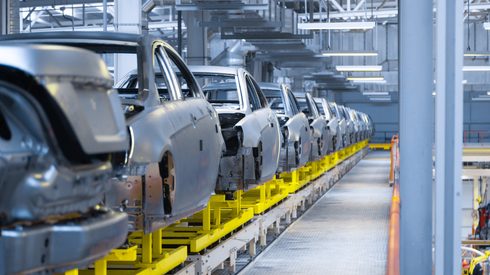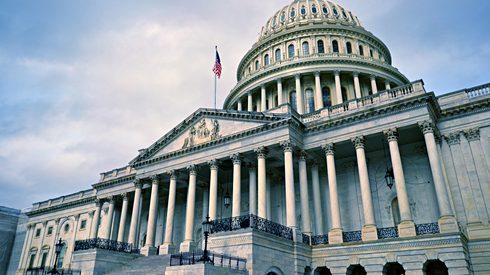US firm TMP Holdings is staking a portion of its investment strategy on the growing potential for metal-intensive infrastructural and decarbonization initiatives in Saudi Arabia, having entered into a memorandum of understanding to support the critical metals supply chain in the country.
TMP has committed millions of investment capital to Saudi Arabia’s National Industrial Development Corp (NIDC) to support the infrastructure and supply of critical minerals – including nickel, cobalt, copper and platinum-group metals – to that country as it implements ambitious non-oil-sector growth plans, the company told Fastmarkets.
The company plans to build a warehouse infrastructure and logistics network to support the critical minerals supply chain in Saudi Arabia.
Beverly Hills, California-based TMP cut its teeth in metals following its landmark acquisition of multi-metal miner Nornickel’s US arm last summer.
Nornickel is the world’s largest producer of nickel, a critical battery material whose supply has been deemed essential for the electrification of motor vehicles – one key facet of the drive to decarbonize the Western Hemisphere.
Russian company removes assets following Ukraine war
Fastmarkets reported at the time of the buyout that the Russian company was divesting US assets due to its difficulty in securing financing following Russia’s invasion of Ukraine in February 2022.
The acquisition of Nornickel’s US branch puts the company at an advantage to supply these critical metals at a low cost and high quality, specifically nickel and cobalt sulfate.
The company’s focus is broad, including investments in blockchain technology, entertainment, financial services, logistics, real estate, software and telecoms. Though it has a global presence, it has focused primarily on Eastern Europe and Central Europe.
When asked what prompted a segue into metals and mining markets, TMP founder and chairman Raymond F. Staples was keen to highlight the role that decarbonization plays in the future of the industry and how the firm is committed to investing in that sphere.
“I am very committed to helping the environment through decarbonizing the planet by getting involved in metals such as nickel, cobalt, lithium and platinum group metals,” he said.
He envisions long-term growth for these metals, particularly in the Middle East and Asia.
“It is in these regions of the world that we still must build a significant amount of infrastructure that the United States already has in place that we take for granted,” Staples said.
Saudi Arabia looks to depart from oil dependence
Currently, $1 trillion is earmarked for 11 megaprojects intended to modernize Saudi Arabia’s economy and broaden foreign investment, TMP said, adding that the country is aiming to become more self-reliant and devolve from a dependence on the export of oil.
Saudi Arabia’s non-oil sector growth has been accelerating since 2021 – it averaged 4.8% in 2022 and was forecast at 5% in 2023, according to the International Monetary Fund.
The country’s desire to diversify its non-oil-related growth is being driven by improvements in its regulatory and business landscape; new investment deals increased by 95% in 2022, while the Saudi Arabia’s Public Investment Fund (PIF) has been funneling capital into public sector investment, as stipulated by the IMF.
Saudi Arabia’s rapid economic growth is driving significant demand for metal-intensive infrastructure – including housing and transportation – and spurring retail and commercial consumption, making it an attractive proposition for foreign investors.
“Since Saudi Arabia has so few refineries, most of its refined metals are imported into the manufacturing sector. [The country] is very interested in locking up long-term supply contracts across the supply chain and having companies come into Saudi Arabia to manufacture, build and sell into the local economy,” Staples said of the growth opportunity presented by the company’s investment in the region.
Green growth?
Cobalt, copper, nickel and lithium are all key electric vehicle (EV) battery materials. Though the majority of supply is being used for more traditional applications, Saudi Arabia is not exempt from the global drive to decarbonize, TMP believes.
“The world will be experiencing a severe shortage of critical minerals over the next decade, and TMP’s objective is to help supply the metals to satisfy this demand,” Staples said. “The role that TMP expects to take on with Saudi Arabia and with other countries is one that will be best construed as a partner, supplier, investor and operator. It seems to me that growth through the building of these refineries is most important to help the green energy movement to reduce emissions of carbon throughout the world.”
“The building of refineries will be critical for reducing reliance on imports and locking up long-term supply of critical minerals for Saudi Arabia’s green initiatives. For now, the majority of these metals are used for construction, stainless steel and other traditional uses,” he added.
The PIF announced last October that it had launched an electric vehicle infrastructure company in which it would own a 75% stake. The remaining 25% stake will be held by the Saudi Electric Company (SEC).
The company, under the brand name EVIQ, is aiming to build 1,000 charging locations across the country, each comprising 5,000 charging stations, by 2030.
The PIF signed a billion-dollar investment agreement with motor company Lucid in late 2018. Lucid completed the build of Saudi Arabia’s first car manufacturing facility in September 2023.
During its first phase of operation, the plant has capacity to manufacture 5,000 EVs per year, but it will eventually have capacity to produce 155,000 units per year, according to the company’s website.
The NIDC, through its Saudi Green Initiative, is aiming to ensure that 30% of new car sales in the region are electric by 2030.
It has been widely reported that Saudi Arabia plans to produce 500,000 EVs per year in partnership with automotive companies, including LUCID, Ceer and Hyundai.
But TMP also views Saudi Arabia as a rich seam for traditional mining investors, estimating that there are $1.3 trillion worth of unmined mineral reserves yet to be tapped into.
The company believes these resources can be used domestically or exported, diminishing Saudi Arabia’s reliance on oil exports.
There are also plans to build a lithium hydroxide refinery in the country to feed the EV battery supply chain there; Australian start-up company European Lithium and Saudi Arabia’s Obeikan Investment Group announced that they were entering into an agreement to form a joint venture to build the plant in June 2023.
Keep up to date with market insights and data with Fastmarkets’ battery material news and prices.






